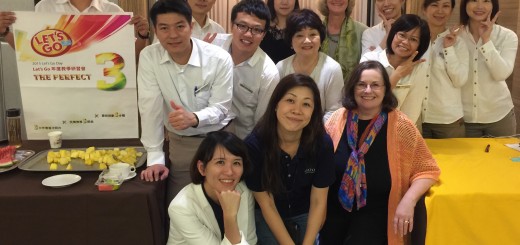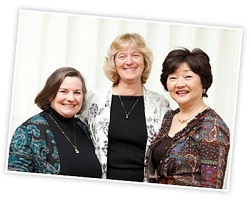Let’s Go in Indonesia
What’s the most important thing English teachers can do to help students thrive in a future defined by rapid change, global connections, and unbelievable access to information? What does research tell us makes the biggest difference in how well students develop the 4 Cs — communication, collaboration, critical thinking and creative thinking — of 21st Century learning skills?
These were the two main questions for the workshops and presentations during my recent visit to Indonesia. It was a whirlwind tour, with workshops and presentations in Jakarta, Yogyakarta, and Kudus over four days. (That’s why there are so many short videos filmed from a car in the slideshow embedded below — I spent a LOT of time traveling from place to place!)
In fact, I had a firsthand opportunity to see why companies prize employees who can think critically and creatively, communicate effectively and collaborate as a team to solve problems. On the way to the airport after my first workshop, I was the victim of Jakarta holiday traffic, and missed my flight. The OUP team sprang into action even before we arrived at the airport, searching for ways that I could get to where I needed to be on a weekend when literally every seat on every means of transportation was filled — some of the ideas were quite creative! Luckily, I was able to get a waitlisted seat on the last flight out of Jakarta and everything worked out just fine 🙂
In case you’re curious about the answers to the questions I asked at the beginning of this post, here’s what I suggested in my talks:
In answer to the first question, the most important thing English teachers can do to help their students succeed in the coming years is to teach English. That might sound obvious, but sometimes teachers become a bit obsessed with thinking of “21st century skills” as discrete things they should teach, in addition to English. However, students can (and should) learn to think critically and creatively, and to communicate effectively and collaborate in all of their classes. English class is often the only opportunity students have to learn English. Considering the growing importance of English skills to employers and for communication online, English class time becomes more important than ever.
In my research preparing for these presentations, I found that there are actually two things that make a significant difference in how well students develop 21st century skills. The first is that we need to teach in the way we want students to learn. So, for example, if we want students to learn think critically and to solve problems creatively, then we need to include activities that let them do this. If we want them to use English to communicate meaningfully, we need to provide opportunities for them to talk about things that matter to them. But, we need to make sure whatever activities we include are also building English skills, or we risk missing our primary goal in English class –learning English. Luckily, Let’s Go makes it easy to spend less time teaching the language in the book so that students can spend more time using the language they learn in activities that allow them to use English creatively and think critically.
The second thing that makes a difference is the teacher. We need to train teachers in the way we want them to teach. Since the way of teaching I’ve described is different than the way many programs are still preparing English teachers, perhaps we can say that the teacher is actually the most important factor for success, since none of that effective teaching will happen if teachers don’t know how to do it! I know it’s one of the reasons that Ritsuko, Karen and I spend so much of our time working with teachers these days.
Anyway, if you happen to be in Indonesia and would like more information about Let’s Go, or just want to connect with folks who really support teacher professional development, I encourage you to get to know the OUP team in Jakarta. Here are their contact details:
Oxford University Press | ELT Division
Address: The Promenade Building, JL. Warung Buncit Raya No.98, 2F, Unit E2, Jakarta Selatan 12510, Indonesia
Tel: +62 21 79195282
Fax: +62 21 79195504
Website: elt.oup.com






Recent Comments